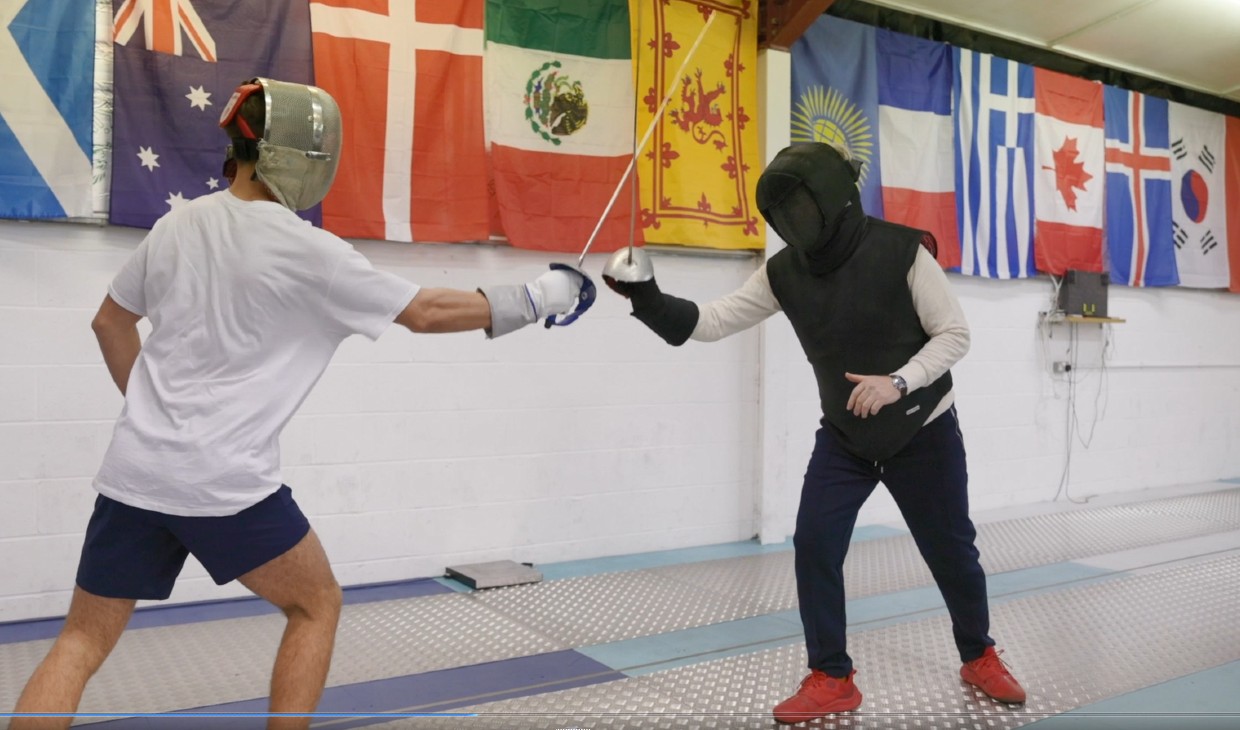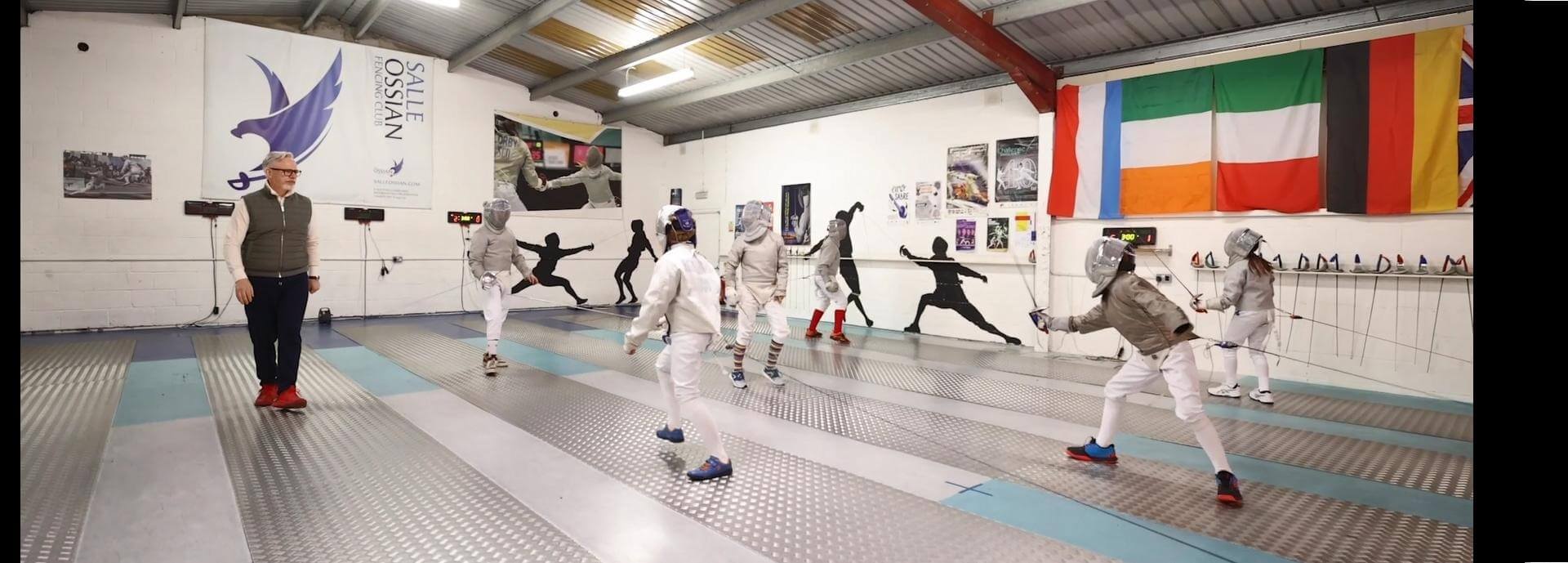A fencing coach and graduate of the University of Stirling is helping to transform the sport in Scotland.
Philip Carson, who graduated this week with an MSc in Sport Performance Coaching, is using the skills developed on the course to help re-shape how the Olympic sport of fencing is coached.
Having been involved in the sport since he was a schoolboy – Philip was in Scotland’s Commonwealth fencing team in 1986 but had his career halted by injury – he coached his two daughters to become Scottish and British champions.
Following a career with the police in London, he relocated to Edinburgh in 2012, and has since become a major force in fencing coaching north of the border.
Philip founded Salle Ossian Fencing Club in Perth – providing the first training facility of its kind in Scotland to support the progression of children in competitive fencing – and has since coached young people to both national and international championships.
The Head Coach said: “The question among parents was, ‘if a kid really wanted to go for it in fencing, where would they go?’ There was nothing, at that time to meet those needs available in Scotland.
“Now, we have fencers competing in the world’s top competitions and producing the best results for both Team Scotland and the British team.”
A recent example of this success is Salle Ossian students Joshua Bryden and Miller Hetherington, both of whom returned from Italy in February having represented Great Britain in the European Championships U17 competition.
Impressed by his success, while studying with Stirling, Philip was approached by National governing body Scottish Fencing to help improve coaching in Scotland. He took on the challenge on the condition that he could take a completely fresh look at the sport.

Students from Philip's Salle Ossian fencing club
"The MSc has been enormously helpful"
He said: “It’s about changing the way coaches coach. Fencing is more than 300 years old as a sport and pretty much the way it was taught then, is the way it is being taught now. It isn’t relevant to the modern game, from the technical aspect to the pedagogy to how we teach.”
He’s now working on a new strategy to overhaul and update coach education, praising his university learning for supporting him along the way.
“The MSc has been enormously helpful,” he said. “I wanted to challenge my thinking and learn more about the science behind sports coaching. The course was distance learning, with access to the material and lecturers constantly on tap, which allowed me to balance study and work perfectly.”
This month, Philip will join 11 of his students at Challenge Wratislavia in Poland – a major international fencing tournament for children under 15 – which means he is unable to attend his graduation ceremony in Stirling.
He said: “It’s an incredible event, with a similar atmosphere to the Commonwealth Games. It gives our students the experience of performing at a very large international event as well as meeting competitors from across the globe. It will give them a taste of what is possible if they continue in fencing.”
Stephen McDonald, Course Director, MSc Sport Performance Coaching at the University of Stirling, said: “On behalf of the teaching team, it has been a real privilege to have been part of Philip's learning journey.
“We are very fortunate to have the opportunity to work with students who have the desire to make a real impact through their coaching."

